You Can't Keep A Good Dog Down
- Nessa Amherst
- Aug 23, 2024
- 18 min read
It's no secret that whenever we're feeling down, exhausted, confused, or all of the above, we go to things and places that bring us comfort and a little bit of an escape from what's going on in our lives.
It could be taking a day trip to your favorite town to hang out at all of the places you enjoy, like the beach, a restaurant, or a museum.
It could be binge watching your favorite movies or TV shows nonstop to get a good laugh, or even a good cry.
It could be going for a walk on your favorite park path to breathe in the fresh air and be out in nature, in all of its seasonal glory.
It could be ordering your favorite comfort foods at your favorite eatery and sitting at home and binge watching your favorite movies or TV shows without getting up off the couch for extended periods of time.
Whatever it may be, we all want to be in the familiarity of things, places, and objects that we know can bring us some form of comfort and reassurance.
I've discovered that watching your favorite films and TV shows over and over again when you're feeling sad is a big form of comfort because you know the outcome of the story and you want to feel reassured and have a sense of normalcy in your life...
Especially when life can be pretty unpredictable at times.
It's nice to have predictability for a change, so why not find it in some of your favorite films and TV shows?
I've discovered that whenever I'm sad or overwhelmed (which has been the case lately in my burnout recovery) I would immediately go to some of my favorite films and TV shows because I want that predictability, and I want to be comforted that all ends well in the end.
Lately, I've been finding myself drawn to a particular animated film that's always brought me comfort and laughs and even some tears...
And I have to be honest with you, it's not one that a lot of people would find comforting.
Especially since it deals with some pretty dark things.
But I love it just the same, and I never get tired of watching this film.

Yup, it's All Dogs Go to Heaven!
I know what you're thinking:
"Nessa, how can this film be a source of comfort to you? It's got way too many dark moments, the script is crass, and I wouldn't be caught anywhere near this film!"
Well, it's true that All Dogs Go to Heaven has plenty of dark and heavy moments, as well as some things that were viewed as inappropriate for a children's movie.
But look at it from my eyes for a moment.
I was never once scarred for life by this film, and a lot of the dark and frightening images didn't bother me as it did so many others.
Maybe it's because I've experienced so many dark moments in my life that pale in comparison to All Dogs Go to Heaven, or even The Land Before Time, or An American Tail.
A lot of the darkness and heavy things in those films never really bothered me because I've experienced too many dark and heavy things in my life that I don't wish anyone to experience:
Like physical, mental, and emotional abuse by my father and older sister.
Like hearing arguments between my late father and older sister, or my mom and older sister.
Like being picked in at school over and over again by the same person.
Like feeling unwanted by the very people who were supposed to love me.
Like being taken advantage of financially by my older sister.
Like never belonging anywhere, or being an outsider.
Like never being appreciated for my gifts, or even for who I am.
I guess I learned to embrace the darkness in my life so that maybe I can find the light in some of these films I've grown up with.
It's not easy finding the light or even the bright side of things when you have so many things coming at you from all sides without having a chance to breathe or even process what you've just experienced.
Maybe that's why I got so drawn to the darkness and not let it bother me in these films.
If the darkness in these films are just a step towards the light and a happy ending, maybe, just maybe, so much of the darkness I'm experiencing now is leading me to more light and a happy ending that I deserve after staying in the darkness for so long.
Even Charlie B. Barkin can attest to that.
He had to learn the hard way that the only way out of the darkness is to embrace a big piece of love that he inadvertently discovered in an orphan named Anne Marie...
And that's love.
Maybe it's the journey of discovering the power of love after a life of crime and being a bad dog is what inspires me to keep going towards the light, even with a few scary images thrown in for good measure.
And maybe it's realizing that it's the love of the cast and crew that came together for one of their own who was tragically taken too soon that has a song from the film that holds a special place in my heart, even after all of these years.
I guess love truly does survive it all.

This story starts off in an unusual place: prison. Specifically, a prison for dogs.
Charlie B. Barkin has been put there for a crime he didn't commit ("I was framed!" is his exact words), and his best friend, Itchy, is breaking him out. All would've gone according to plan except for two things: one, getting dust in his nose from all of the digging which causes him to sneeze. And two, his colorblindness. Itchy ends up jackhammering a pipe that's a water main, and it causes the tunnel to flood! (Itchy believes water mains are green, and the pipe he sees is red in his eyes. Charlie disagrees, and then hilarity ensues.)
The two dogs barely escape with their lives, with lost items like drills and jackhammers being exploded by guns and Itchy's insistent scratching when his anxiety is off the rails.
Back at the gambling casino where dogs place their bets on rat races (which apparently is rigged), Charlie and Itchy return victorious from the jail break, but also discover that Charlie's business partner, Carface, hasn't been running the business on good terms while Charlie was incarcerated, er, framed. In the midst of all of this, Carface's lackey, Killer, discovers Charlie has returned and rushes back to tell Carface the news.
We then discover that Carface doesn't want to share 50% of the business with Charlie, and has a plan to do away with him. In a "business like way," no doubt (which doesn't bode well for Charlie, in this case). Charlie meets up with Carface in his office, and the two talk as if they're old friends. Charlie tries to convince Carface to liven up the place with some new ideas - a little class, a little culture, choreography, some influence of the theatre, dancing girls - but Carface isn't convinced (or least he pretends to be unconvinced, but we know his true motives, right?).
Carface then announces that they need to split the partnership due to Charlie's bad record while being in prison, reminding Charlie that it's for their own good. They then do business - cut half of the business, which includes a cut of the different types of steaks, T-bones, porterhouse, 1/2 of the mignon, you get the idea. Charlie agrees to the deal with a handshake, as business partners do. Carface announces that Charlie is going into business for himself, and proceeds to take everyone out to the Mardi Gras festivities.
Unbeknownst to Carface, Itchy has heard of Carface's true intentions for Charlie while being in a secreted section of the club. Killer tells two of Carface's henchmen that they're going to get rid of Charlie. Itchy, of course, is horrified, and tries to get to Charlie to prevent this from happening.
At the Mardi Gras celebration, the party is in full swing, with everyone getting snockered, especially Charlie. Carface gifts Charlie with a lucky gold watch, and Charlie is grateful (as someone who is drunk can be). Carface surreptitiously whispers to Killer to take Charlie out back for the "big surprise."
The big surprise as it turns out, is not a good surprise.
You see, Charlie is taken to the pier, blindfolded, and waiting for the "big surprise." Charlie is still obviously drunk at this point, so he has no idea what's going on. He's even singing at the top of his lungs, as a drunkard would. At the top of the hill at the pier, Carface has turned on a car, and both he and Killer both push the car which goes speeding down the hill towards Charlie! Despite Itchy making it there before this happens and calling for Charlie, it's to no avail. I think you can figure out what happens next...
Well, we see a blaze of light and increasing speed upwards into the stratosphere. And Charlie going up, up, and up. The light gets brighter, there's the beautiful music, vibrant colors, things go by faster, and then... CRASH! It turns out Charlie has crashed into a gate of some sort once the clouds break apart, and he doesn't know where the heck he is.
Suddenly, a Whippet comes before Charlie and informs him that he is in the Great Hall of Judgment, which freaks Charlie out a little bit. The Whippet assures him that he's alright and that all dogs go to heaven (hence the title), and takes him on a tour. It's a beautiful place, heaven - doing whatever you wish, eating whatever you please, the temperature is 73 degrees (still in Fahrenheit), no more rat races, order and calm, and being dead.
Wait a minute. Did she just say "being dead"? Yup, she sure did.
Charlie is quite taken aback by this, as you can imagine. He is outraged that he was murdered by Carface, his business partner, no less! He pleads with the Whippet that his time isn't up and that he has to go back, even as he's outfitted with a white robe, wings, and a halo, which he promptly rips off. As Charlie is being taken up by a cloud, he finds himself in a new section of heaven, surrounded by clocks and watches. The Whippet explains to him that these clocks and watches were all of the lives the dogs led, and they stop when their time is up (see what I did there?). Charlie asks if anyone can just wind it backwards again to get it working. The Whippet replies no, and that no one is ever allowed to go back.
Charlie is a bit dismayed that there's no surprises or thrills in heaven, as in heaven everyone knows everything. So, he decides to use his wiles to lure the Whippet away from his watch that he saw earlier, and sneakily winds the watch back up again behind his back. The Whippet is horrified by this, but before you know it, the watch starts shining a bright light, and we see Charlie going back down, down, down again. And there's a frightening message as Charlie is heading back down - "You can never come back!"
SPLASH! Charlie emerges out of the water coughing and breathing heavily, and finds that his watch that he took from heaven starts going tick-tock, tick-tock. He's alive! But then Charlie hears the eerie message again - "You can never come back! You can never come -" He closes the watch in disgust. Charlie has seemingly cheated death, and he's now on a mission. He's going to make Carface pay for killing him, no matter what it takes.
I'd tell you more at this point, but I'd be giving away too many spoilers, so I think the best thing is for you to watch how this movie ends...
And also keep reading on. There's more observations and reflections to talk about!
All Dogs Go to Heaven is one of those films that isn't all bright colors and happy songs. In fact, it's quite dark for a film released in 1989.
But then again, a lot of the 1980s animated films were darker and dealt with heavier material than its predecessors. They were really ahead of their time for dealing with some of the more mature and heavier topics prior to what we see now in films like Encanto, Turning Red, Spider-Man: Into the Spider-Verse, Inside Out, Soul, and many more films.
But unlike these recent films, the animated classics of the 80s weren't afraid to cut right to the heart of topics like mysticism, poverty, drugs, gambling, drinking, and even death. No salve was needed, and it hurt real bad as we watched it.
Some parents who had children in the 80s often complained to studios and executives that these films were too dark and needed to be brightened up so that it would be more appropriate to families to watch, including the younger children who are prone to nightmares and being traumatized.
Many times the studios complied, but the sequels and remakes often suffered because they gave into the parents' demands.
Even today there are still some parents who believe that children shouldn't be exposed to films that talk about menstrual cycles, mental health, divorce, broken families/generational trauma, immigration, and death.
Protecting the child's sensitivities and fragile constitutions is what comes to mind.
Somehow, I wasn't bothered by the darkness, as I stated earlier. In fact, I sort of appreciated the darkness.
It gave the non-Disney films an edge that I have long admired and appreciated.
They were willing to go deep and be ahead of their time with some of the topics in these films that often get overlooked by the massive colossus that is Disney.
It's just that only now Disney is finally starting to catch up, as are critics and families for the most part.
Yes, there are still some people who don't like the darkness and that the only things that matter for children is the bright colors, cool songs, and story that isn't heavy and dark and mixed in with the bright spots.
But we are making progress, right?
It's just sad that the world of the 80s wasn't ready to accept or understand darker animated films that made a profound difference on the lives of children and families growing up, and that there was more than just Disney films out there.
And yet, they're the ones that had the most impact on my life because it taught me to embrace the darkness with the light, sometimes in a better way than what Disney tried to do during the Renaissance.
I wouldn't have known that the massive immigration to America was rough for the people fleeing persecution and going towards opportunities, or even that sweatshops existed in late 1880s America if it hadn't been for An American Tail.
I wouldn't have known about the diphtheria epidemic that plagued Nome, Alaska, in 1925 and had a half-wolf/half-dog breed who was practically ostracized by the town save the day (history being slightly altered) if it hadn't been for Balto.
I wouldn't have known how scary hell is, especially if your soul is damned for eternity, if it hadn't been for All Dogs Go to Heaven.
These and the other overlooked films mattered to me then...
And they still matter to me now.
Why don't we appreciate them for what they are and how much of an impact they can have, fear notwithstanding?
Light matters, but how can we run towards it without acknowledging the darkness and learning to accept it? So that we can continue to appreciate the light even more?
Going back to All Dogs Go to Heaven, it's unusual for a film to have so much darkness.
There's gambling, drinking, smoking, double-crossing, murder, even the afterlife.
But to effectively mix all of that in with some lighter moments would have to take some effective storytelling, great animation, and an incredible cast to make it all happen.
And boy, this film hits all of the marks!
Did I mention how amazing this cast is?
I mean, you have Burt Reynolds, Dom DeLuise, Vic Tayback, Charles Nelson Reilly, Loni Anderson, Ken Page (pre-Nightmare Before Christmas fame), and Candy Devine.
I think this cast is one of the most unexpectedly enjoyable group of people I've enjoyed in a film I've grown up. Each one just had an unforgettable presence for their characters.
I mean, Charles Nelson Reilly as Killer shows how versatile he was.
He can be particularly snarky and intelligent in the theatre, but he can also be a sniveling idiot in this film.
Vic Tayback was always loud and using his voice on Alice, but he was also gruff, manipulative, and villainous in this film.
Ken Page - yes, Mr. Oogie Boogie Man himself! - jus blew me away with his voice and his larger than life personality. He clearly had too much fun voicing King Gator.
And then there's my favorite duo - Burt Reynolds and Dom DeLuise.
These two were very good friends in real life, so it was a no-brainer to get the two of them together for All Dogs Go to Heaven.
Dom DeLuise was already a household name with his work with Mel Brooks and voicing two of Don Bluth's films - Jeremy in The Secret of NIMH and Tiger in An American Tail - so to ask him back to do this film was easy.
Burt Reynolds, in all honesty, surprised me.
I had no idea how handsome he was until I saw his picture, and I can bet every woman in America, even the world, had a crush on him (I think my mother might be one of those people included. Don't tell her I said that, though.).
His voice is very distinctive for Charlie - suave, a bit rough around the edges, and just enough warmth to make you smile. That sounds about right, right?
But the back and forth between Burt Reynolds and Dom DeLuise had me laughing!
It was so natural to hear them banter back and forth and you couldn't have asked them to do a better job than this.
Whenever Itchy had a snarky comment like this: "I don't care if it's his bar mitzvah. That horse is a glue pot!" Charlie would reply only in the way Burt Reynolds would: "SHUT UP!"
Or even if Itchy was worried and pouring out his heart to Charlie, there's a certain level of warmth and understanding these two have where they can trust each other to interact in a way that only two good friends would.
Don Bluth really hit a home run with this cast.
But I mustn't forget the most important part of All Dogs Go to Heaven:
Judith Barsi, who voiced Anne Marie.
And what happened to her will just about break your heart.

Judith Barsi was a rising child star in the 80s. At the time she was filming The Land Before Time and All Dogs Go to Heaven, she had starred in over 70 commercials and guest roles on television. By the time she was in fourth grade, she was earning an estimated $100,000 (at least $258,000 today), which allowed her family to move into a three-bedroom house. All should be well with the family, right? Sadly, no. You see, Judith's father was an alcoholic and abusive to her and her mother. He had threatened both of them on a number of occasions. Even when he stopped drinking, he was still a threat to the both of them. On some occasions, Judith's father threatened to cut out their throats, even writing a fake telegraph telling Judith's mother that her relative in Hungary had died, preventing them from leaving the U.S. In May 1988, after breaking down in front of her agent, Judith was taken by her mother to a child psychologist, who identified severe physical and emotional abuse and reported her findings to child protective services. Judith was scarred by the abuse by doing things like pulling out her eyebrows and plucking her cat's whiskers as a form of compulsive behaviors. Yeah, it was really bad. The investigation was later dropped after Judith's mother assured her case worker that she intended to begin the divorce proceedings right away and move into an apartment away from her husband. Judith's mother's friends urged her to follow through with this, but like anyone who has been in an abusive relationship, she was hesitant to stick with the plan. But something went wrong... Tragically. On 28 July, the Los Angeles Times reported three people had been found dead in an apparent murder-suicide and that the bodies were of Judith's mother, Judith's father... and poor Judith. It was believed that Judith's father had poured flammable liquid (think gasoline) on the bodies of Judith and her mother, while Judith's father was found in the garage, dead from a self-inflicted gunshot wound. As you can imagine, everyone at the studio was devastated by Judith's murder. Don Bluth walked out of the studio and cried, wishing he could've done more. I bet everyone else felt the same way. Filming for All Dogs Go to Heaven was halted for two months. And when it resumed, everyone was still shaken to the core at what had happened several months earlier. In fact, it took Burt Reynolds 63 takes to do the final scene in the film because he was crying so many times in grief over Judith's death. (You'll know it when you see it.) So, how do you honor a life taken too soon, especially in the most tragic way? How else? Through song. The cast and crew came together to immortalize Judith's memory in the end title song, "Love Survives," where each had a part in writing the lyrics. And when you think about it, the words start to make sense when you listen to the song: 🎶 Now I know you're safe here in my heart
You will always be with me
We'll never be apart
Never knew how strong my love could be
You're the one I've waited for
Now you're home
I believe!🎶
🎶 Love survives beyond our lives
I feel those ties...
...growing stronger (Growing stronger)
Love survives the tears we've cried
Yes, love (Yes, love)
Survives it all
Love survives it all!🎶

After the words were written, they found the arrangers, lyricists, musicians, and artists to put it all together in time for the film's release. The music and lyrics were done by Al Kasha, Joel Hirschhorn, and Michael Lloyd. The song was performed by Irene Cara and Freddie Jackson.
I'm not 100% sure why they opted to not put "In Loving Memory of Judith Barsi - 1978-1988," instead of doing the song. But if a child was tragically taken from us at such a young age, would you want to put something like this at the end of the movie?
Especially when young children may ask why?
Probably not.
Somehow, for a film that deals with so much darkness, the cast and crew had to find a way to bring light for someone who was a light in their lives...
And be at peace knowing that she will always be that light looking down on them from heaven.
I will also add that all of Judith's mannerisms and facial expressions were embodied in Anne Marie. A little special added touch to pay tribute to Judith Barsi's memory.
And even Don Bluth himself said that Judith was "absolutely astonishing. She understood verbal direction, even for the most sophisticated situations."
He wanted to work with her again, and again, and again, if only things were different.
(This week's blog is a bit of fun, with a little bit of darkness thrown in there. But like all of my other previous blog post, this one is still my thoughts and observations, and you are welcome to disagree on anything I've said. But what I don't want is any offensive language, disrespectful comments, or anything derogatory to myself or to others. We have to be a light to others by showing kindness to each other, even if it means agreeing to disagree or simply walking away from commentary that's not worth your time. If you can't do a simple thing like that, I will block you.)

It's a shame this film was so misunderstood when it was released back in 1989. Come to think of it, a lot of the non-Disney films were misunderstood, overlooked, and under-appreciated when they were first released. One thing that doomed All Dogs Go to Heaven was it was released the same day as a certain behemoth film... The Little Mermaid. More families flocked to see Ariel, go under the sea, and officially begin the Disney Renaissance... Than go to heaven and learn about light and darkness with Charlie. Films by Don Bluth Studios, Amblin Animation, Fox Animation Studios, and others were simply second rate to Disney around this time and moving into the 2000s. In fact, when Don Bluth was creating Anastasia, it was sure to be a hit for him and finally bring him back into the limelight again. However, Disney, threatened by the eminent success of Anastasia, foiled his plans once again by doing the same thing it did 10 years ago... Rereleasing The Little Mermaid to theaters for its 10th anniversary. The Little Mermaid was #1 at the box office... and Anastasia was #2. I don't know if that's just how it works in the film industry, but that's kind of a dirty, rotten trick to me. And I'm not sure if I appreciate that move on Disney's part. I somehow appreciate the overlooked films more because there are more stories to be told that a lot of major studios tend to not want to gravitate towards, at least not in the 80s, anyway. All Dogs Go to Heaven showed a pooch who wanted what was best for his customers to move forward and change with the times, but stuck with his selfish ways to get there. He had to find out that there was more to life than gambling and double-crossing in order to find that happiness. And it was in the form of a little girl who he thought was a both a nuisance and a commodity to his success... But ended up teaching him that love will always find a way... even a selfish heart that wasn't even capable of love (or so he thought). Love has a way of leading people to things, like forgiveness, creativity, and hope. Maybe in a sense All Dogs Go to Heaven was all about all of those things. Sure, there's a chance you could be damned to hell if you don't change your ways... But maybe by opening your heart to the most unexpected of people who can show you how there's more to life than greed, division, and hatred, you might just discover that light always drives out the darkness. Even if it's in the form of a little girl. On the days when it's hard to keep going, I keep returning to the films that I know will bring me joy. But also give me hope that all will be well. Even when life is especially unpredictable. Even if the films have the darkness in them that seem to overwhelm you, it's a reminder that in order to appreciate the light, we have to go through the darkness and find those moments of joy wherever we go. Sometimes its those dark moments in the film where I get a sense of how hard life is, but how we an also push through and not give up, especially when it gets scary. I think it's safe to know that these films will hold a special place in my heart because of this. Yes, they're not Disney and they're not on the grandiose scale. But they're still precious to me, and they've always mattered to me. Perhaps it's time to take a look at these films and appreciate the darkness, so that those moments of light can make that much more of a difference your life when you're going through some challenging moments in your life. And if all else fails, a good banter between Burt Reynolds and Dom DeLuise will get a belly laugh out of you... It always works for me!



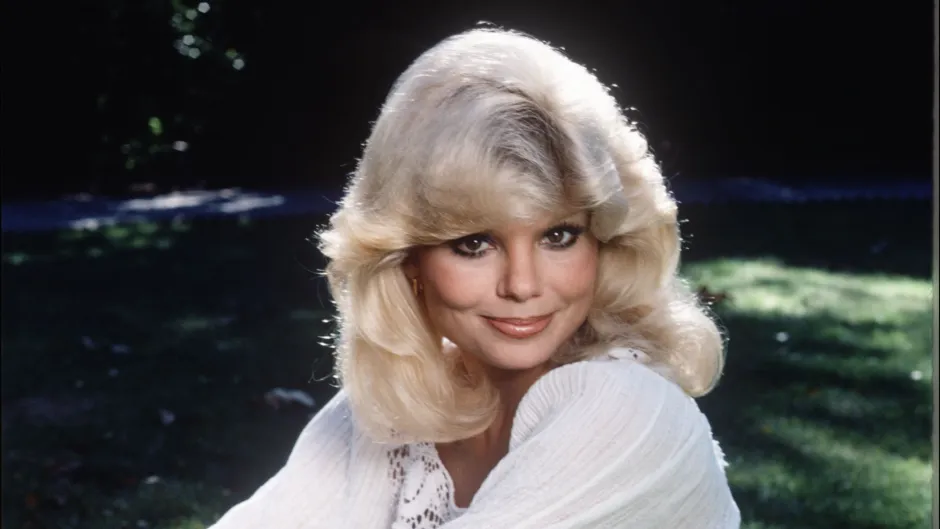

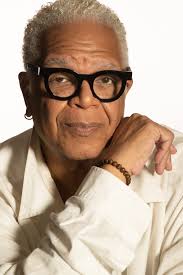
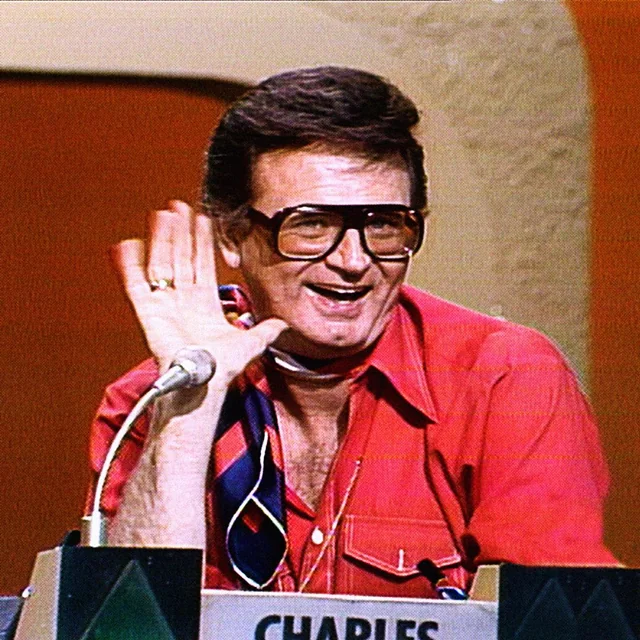


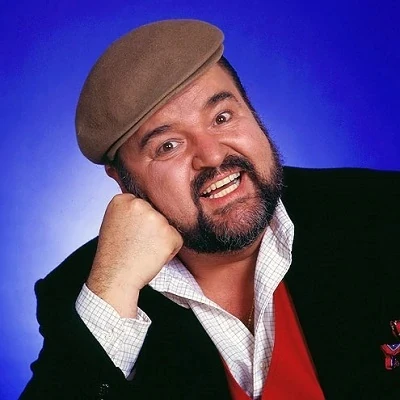
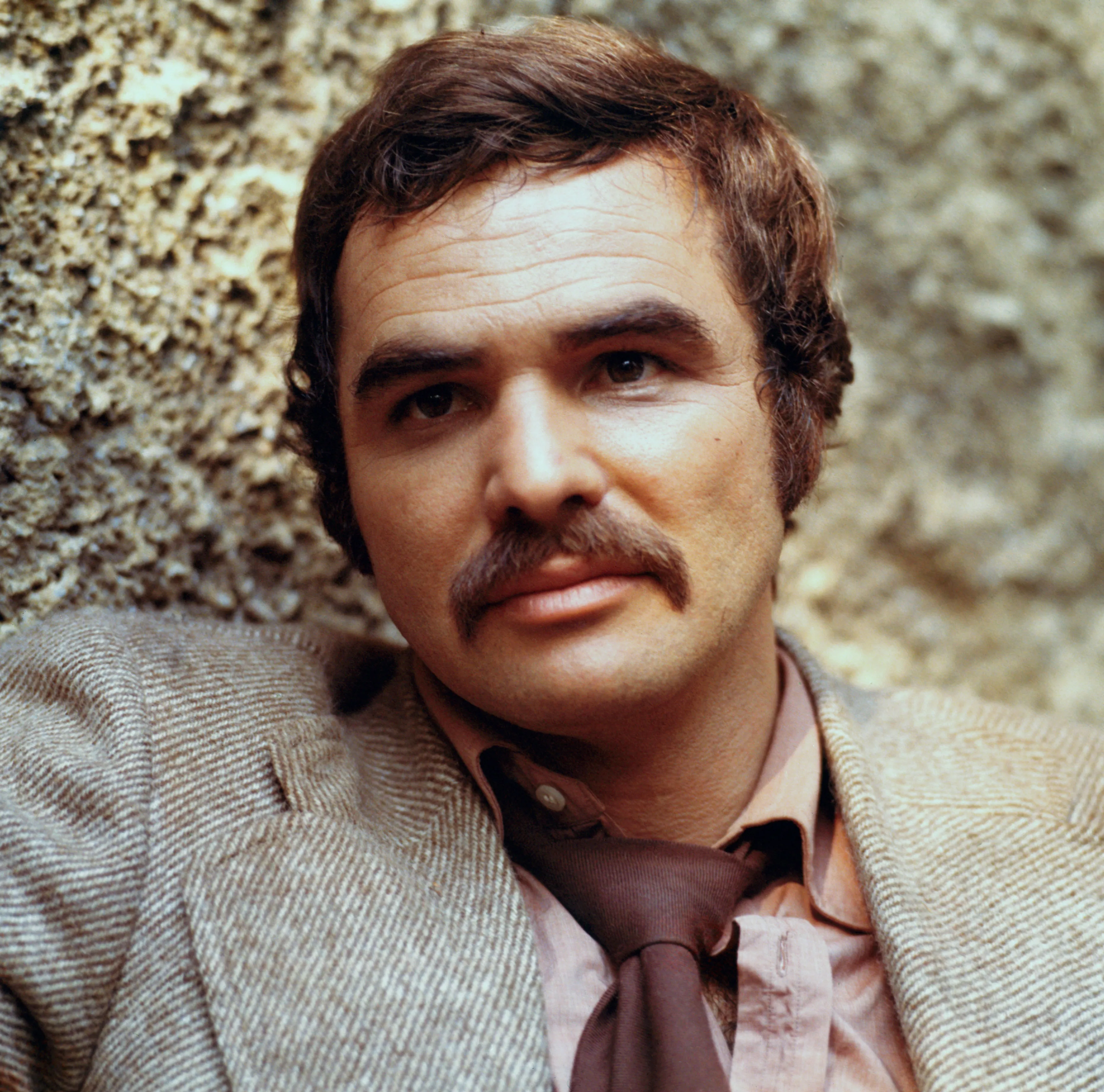



Comments